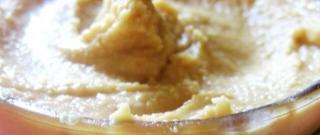How to Store Dairy Products Correctly
Correct storage of products helps preserve their nutritional value and avoid spoiling. More importantly, it contributes to the prevention of digestive disorders and stomach discomfort. Each type of product has a specific set of storage requirements. However, dairy products need special attention. Products like milk, yogurt, cream, cheese, or cottage cheese are more likely to be spoiled. There are usually only a few days to preserve their value, vitamins, and nutrients.
Tips for Keeping Your Dairy Products Fresh and Safe
How can you ensure dairy products are fresh and safe to consume? The best way to do that is to check the recommendations and production date mentioned on the package. But what if you buy these products at the market, where the quality might be affected by various factors?
If you trust the seller, use accepted dairy storage rules. Keep milk, cream, and other dairy products in neat containers to maximize their nutritional worth and increase their shelf life. To keep dairy from absorbing outside smells, which could ruin its flavor, always keep it in sealed containers in a dark spot.
Store milk, cream, and cottage cheese at refrigerator temperatures—ideally between 1 and 4°C (34–39°F.). Additionally maintained in this range should be mayonnaise and sour milk. Though certain hard cheeses may be stored at higher temperatures, cheese and butter are best kept around 4°C (39°F).
Speaking about cottage cheese and fermented milk drinks, it is advisable to consume them 24 hours after the purchase. Cheese should be kept in a special container. As mentioned above, it quickly absorbs other scents. Moreover, it dries out if the moisture in a fridge is low. To prevent these situations, you can either put the cheese into a closed container, cover it with baking paper, or put it into a sealed pack. After that, you can put the cheese in the fridge.
Maintaining Optimal Refrigerator Conditions
To manage moisture and keep cheese fresh, it's better to use materials like wax paper or parchment paper to wrap the cheese. Then, you can place it in a container or a cheese storage bag that allows some airflow. Some people use a small, breathable cloth or paper towel inside the container for extra moisture absorption.
Effective Cheese Storage is Pivotal
If well-packed, semi-hard types of cheese are kept in the refrigerator for several weeks. Hard cheeses may stay longer; soft cheeses should be eaten five to seven days after opening. Fresh cheeses need to be consumed for five to seven days as they are more perishable. Good storage causes its shelf life to be extended.
Use a refrigerator thermometer to make sure your appliance maintains a constant temperature between 1 and 4°C (34–39°F), optimizing the freshness and lifetime of your dairy goods. Temperature variations may hasten spoiling. A thermometer helps you prevent temperature swings. Furthermore, avoid overloading your refrigerator as cooling depends on appropriate air circulation.
For more specialized dairy products like kefir or buttermilk, make sure they remain firmly sealed and in their original containers. These fermented dairy products have helpful microbes vulnerable to environmental changes. If you purchase in volume, think about freezing items you won't need right away. While freezing helps maintain quality, certain dairy products may change in texture; so, defrost them gradually in the refrigerator to minimize modifications.
The Dangers of Bad Dairy Storage
Ignorance of correct dairy storage could cause major problems. Spoiled dairy products can lose their nutritional worth and cause stomach problems and food poisoning, posing health hazards. Pathogens including bacteria, mold, and other viruses flourish in badly kept dairy, causing possible diseases. Poor storage may also compromise the taste and texture of your dairy products, making them unappealing. Following advised storage techniques attentively is necessary to prevent these issues. Store food in sealed containers; keep refrigerator temperatures constant; pay attention to expiry dates. These steps help you guarantee the quality and safety of your dairy products and promote both improved health and a more pleasurable cooking experience.






